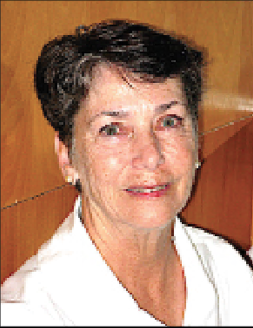Equalization pay plan draws fire
Published 12:00 am Wednesday, December 15, 1999
ERIK SANZENBACH / L’Observateur / December 15, 1999
LAPLACE – Angry St. John the Baptist Parish employees and severalconfused members of the Civil Service Board have forced the Parish Council to go back to the drawing board with its much-touted equalization pay plan.
At the very first meeting of the Equalization Grievance Committee last Thursday, the six-member board, made up of council members Duaine Duffy, Dale Wolfe and Perry Bailey, Civil Service Board members Lanard Robinet and Barbara Jacobs and parish employee Eloise Joseph, heard many employees express concern over the methods and procedures used in determining who would get raises and promotions under the new pay plan passed by the council last month.
As Raydell Morris, operations manager in the utilities department and one of the architects of the new plan said, “The package itself is fine, but the council didn’t put people into the equation.”The new equalization plan, spearheaded by Wolfe, is an attempt by the parish to finally put fairness into raises and promotions for parish employees. Wolfe said his plan would be a stop to certain practices.”People with no seniority are getting paid more than people with seniority,” Wolfe told the committee, “And I want to know why.”Under the new plan, every employee is put into a grade according to their job description. Within each of the 10 grades are six pay steps anemployee can receive according to the amount of time they have worked for the parish.
Therein lies the problem, according to a majority of employees.
Most of the employees’ complaints Thursday had to do with how a supervisor or director would determine when an employee could be moved from one step to the next on the pay scale.
Bobbi Butler, Civil Service administrator, expressed most of the employees’ frustration when she asked the committee, “How long is it from step one to step two? This is not mandated in the Civil Service. Howlong is a step? We need a policy.”As one disgruntled parish employee said, “All we want to know is how to get from here to there.”Morris added, “The council didn’t pass any procedures, just the numbers.”Peter Cazalas, duty foreman, suggested raises and promotions should be based on evaluation, experience and seniority. He said he was aware of 13employees with lots of experience who had not gotten raises.
“This is favoritism,” Cazalas said.
Morris agreed and thought an evaluation process was necessary. “We musthave a universal method for evaluation so favoritism won’t be used.”Director of Finance and Personnel Claudette Raphael went even further.
“Each employee should be evaluated each year on their hire date,” Raphael told the committee. “And the evaluation should be the basis for anemployee to move to the next step.”Wolfe was upset the council was being blamed for all the grievances.
“The people to blame are the supervisors and department heads, not the council,” Wolfe chided the employees. “We put the wheels in motion to seethat you were treated fairly. If the supervisors won’t do that, it’s not ourproblem.”Wolfe said none of this should have happened because he had sent out a memo asking that all supervisors and directors interview all the employees on the new equalization plan.
However, Raphael informed the committee the memo had not been received until Wednesday and there hadn’t been any time to act on it.
Wolfe then instructed that all supervisors and directors should get with all employees and interview them.
There was a general outcry from the audience that this would not do any good because the supervisors do what they want. Some employees saidthere were supervisors who are trying to help but they have no idea of what they should do because there are no set guidelines.
Robinet said that as a Civil Service representative neither he nor Jacobs could take any action on the employees’ grievances at the present time.
“We can’t do anything without the supervisors being present,” he told the room of employees. “There is nothing we can do unless we have thesupervisors’ explanation of their decisions.”One of the few directors present at the meeting was Sammy Accardo, director of Public Utilities. He proposed to the committee that the meterreaders who are put in Grade 3 be moved up to Grade 5 because they are called in during emergencies and end up operating equipment and should be paid as such. The committee said they would take it under advisement.Bailey, who came to the meeting near the end, said he is aware of the problems.
“I recognize the discrepancies in the plan,” he said, “and I think each employee should meet with their director or supervisor, discuss the various grievances and come to the finance committee meeting on Tuesday. All grievances will be addressed on Tuesday.”Bailey added, “We can’t really do anything tonight. We have to get anemployee handbook.”After the meeting Jacobs echoed that sentiment.
“If we had some sort of manual, we would know what to do,” she said.
“Without the guidelines, we are flying blind.”
Return To News Stories





